High house prices, high unemployment, and a state budget shortfall have contributed to out-migration to other states.
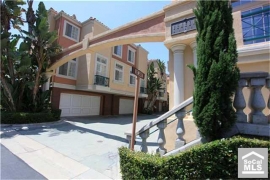
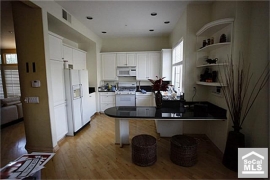
Irvine Home Address … 12 VENEZIA AISLE Irvine, CA 92606
Resale Home Price …… $564,900

California, Here I Come
Right back where I started from
where bowers of flowers
bloom in the spring
each morning at dawning
birdies sing at everything
a sunkissed miss said, “Don't be late!”
that's why I can hardly wait
open up that golden gate
California, Here I Come
Al Jolson — California, Here I Come
Are they? Are the people still coming? Will we form enough households to create the demand necessary to sustain current pricing given the problems in California?
Does today's topic seem familiar? If you were reading during the Christmas holidays, you may remember With people leaving Orange County, who will buy our overpriced homes?
The California Ponzi scheme economy collapsed as the Great Housing Bubble deflated. I have documented over a thousand cases of HELOC abuse here in Irvine, California. Most economists underestimate the economic stimulus of millions of homeowners being given hundreds of thousands of dollars in free money by our banks. Now that this money is gone, Orange County home prices too high for incomes or rents, and Orange County home sales are falling with prices to follow.
These economic woes are prompting families to leave the state. With new household formation near historic lows as we get off the Ponzi juice, there is little tangible demand for housing, and prospects for this demand increasing appear weak.
Today we look at a different dataset showing the same basic pattern: people with a choice about where they live are choosing to live outside of California. Population is still growing because births exceed the outmigration, but newborns don't buy homes, and those who need work to buy homes are leaving the state due to our high unemployment and high cost of living.
Have dark days dulled shine of the Golden State?
Source: USA TODAY
Publication date: March 9, 2011
By William M. Welch
High unemployment, foreclosures and a staggering budget crisis detour domestic migration from California
LOS ANGELES — Census figures released Tuesday detail the new reality that Californians are facing: The Golden State is experiencing the limits that come with slower growth.
Often viewed as a leading indicator for the rest of the country, California is a state where whites are no longer in the majority and where the rise of Hispanics is changing the face of its population and its public schools.
High unemployment, record home foreclosures and declines in industries such as construction and technology have put the brakes on the economy. Joblessness in the state was 12.5% in December, compared with 4.7% in January 2001, according to the U.S. Bureau of Labor Statistics.
While the nation is emerging from a recession, California felt it early and is continuing to lag, economists say. That makes the state far less attractive to residents of other states who in previous decades may have longed to join the California dream.
“The biggest change is definitely the slowing down in our rate of growth and the almost total stop of people coming to California from other states,” says Douglas Johnson, a fellow at the Rose Institute of State and Local Government in Claremont.
California house prices went up so fast during the last 40 years at different times through a combination of wage growth and irrational exuberance. Even if every market were at rental parity and stayed there, many California markets would have outperformed the nation because wage growth outperformed the nation.
High wages coupled with robust employment growth drives a great deal of household formation and demand for housing. The California story for the last 40 years has been, off and on, boom and bust, with an undercurrent of strong wage growth. The wage growth is what makes the real estate engine purr. It corrects all mistakes. Overpaying is only a problem for those who can't wait for house prices to come back, right?
Without wage growth, homebuilding grinds to a halt, household formation slows, and home prices stagnate. 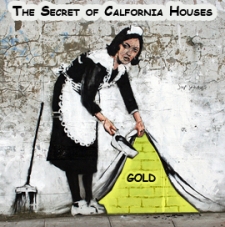
Population growth in recent years in California appears to be internally driven — more people having babies than dying — rather than the massive immigration the state once saw, he said. The Hispanic population is growing fast in part because much of it is of childbearing age while the white and black populations are older.
The small decline, just under 1%, in black population is the first ever such decline in the state, says demographer Hans Johnson at the Public Policy Institute of California.
The state still is attractive to immigrants, particularly from Latin America and Asia, but as with domestic migration, many immigrants now are going to other Western states. “We're not the trailblazers for the rest of the country that we were,” Douglas Johnson says. The Golden State, he says, “has definitely lost its shine for people from other states.”
What is there to attract outsiders to California? Yes, the weather is great, but house prices are double or more the cost of other areas of the country, job prospects are bleak, and state government is dysfunctional.
At the same time, political dysfunction has left the state with staggering budget problems every year and produced large-scale public disaffection with the state's political leaders and institutions.
Gov. Jerry Brown, once the state's youngest governor and since his election last November its oldest at 72, has proposed tax increase extensions and massive budget cuts. He is working to win the backing of the state's business community to get tax proposals on a statewide ballot in an effort to close a projected $25 billion shortfall by June 2012.
“We have become an average-growth state,” says Stephen Levy, director of the Center for Continuing Study of the California Economy in Palo Alto.
So much for that above-average wage growth.
He says the Los Angeles area's growth in part is due to an influx of upper-income Asian immigrants buying homes and settling, and a strong entertainment industry. He notes, though, that 600,000 construction jobs were lost in the recession, and tens of thousands of aerospace jobs have been lost permanently over the past two decades or so.
The FCBs will save us. Irvine will become a hub of savvy buyers who seek to outbid each other with cash for an Irvine tract home. Forget posh condos in Manhattan when you can invest in single-family detached homes in Irvine.
California's dynamic growth through much of the 20th century couldn't last forever, demographers say.
Joel Kotkin, executive editor of the website NewGeography.com, blames California's tax and regulatory climate, which he says discourages business. He says big businesses may not be fleeing, but they are directing their expansions elsewhere.
The problem with being one of the highest prices markets in the country is that every nearby market pulls you down by the substitution effect. The high prices in coastal California pushes growth inland as buyers substitute driving distance for cheaper housing. Cheaper substitutes in Riverside County limit price increases in Orange County.
The state saw big population increases in inland areas, where lower housing costs and pre-recession job opportunities made it attractive. Populous coastal areas grew more slowly.
“You've got demographically stagnant coastal areas controlling the fate of more demographically vital inland areas,” Kotkin says.
Inland Riverside County grew more than 40%, even though Hans Johnson says it and other interior regions were devastated by the recession in the last several years of the decade. Five of the nation's top 10 metro areas for home foreclosures are in California's interior region, according to RealtyTrac.com, which tracks foreclosures.
Unfortunately, much of the housing demand of 2003-2006 was artificial demand. When lenders lowered standards to qualify more borrowers, those borrowers bought a house and stimulated a great deal of household formation. With access to cheap money gone, the demand that was pulled forward is now absent from the market.
The limits have been clear in the pessimistic views voiced by Californians in monthly polling conducted by the Public Policy Institute of California. It found in February that by 55%-34%, Californians think things are going in the wrong direction in the state. Still, the 34% saying it was going in the right direction was up from 16% last October, just before the election.
Mark Baldassare, CEO of the institute, says Californians want an end to their annual state budget dramas and are sensing that the economy is stabilizing. He says the state is still one of the largest economies in the world and offers attractive weather, beautiful scenery and a diverse cultural vitality.
“People were shocked by the economic problems and the fiscal problems of the state during the past few years,” he says, “but they're beginning to get the sense that things are stabilizing and coming back to what might be a new normal. It's a time of more limited expectations, but nonetheless some feeling of hope and promise for the future.“
For as bad as things look for California, this crisis too shall pass. The idea of a “new normal” is the cultural equivalent of the The Unceremonious Fall from Entitlement. Everyone has to adjust to a lifestyle within their means. The days of endless Ponzi borrowing are not coming back soon — they may come back — but not anytime soon.
We have done nothing of substance to prevent desire for mortgage equity withdrawal from Inflating another housing bubble. Most buyers of California real estate at least acknowledge it is a distinct possibility that the market may go insane, their home values could go orbital, and they may be offered free money to spend. I would argue that many buyers have this expectation.
If wage growth does not match its historic stellar performance, real estate appreciation will not either. An entire generation is overpaying in anticipation of appreciation that may not materialize.
Bringing cash to the closing?
The owner of today's featured property paid $579,000 on 5/5/2004. He used a $452,000 first mortgage, a $113,000 second mortgage, and a $19,000 down payment. On 6/8/2006 he refinanced with a $560,000 first mortgage which represents a $5,000 reduction in his mortgage balance. For his amazing mortgage management skills, I am giving him a B on the HELOC abuse grading system.
He is trying to get out for a price near his 2004 purchase price. Ordinarily, you would think that selling seven years after buying a property you would be able to sell it without losing money, but that is not the case for this property.
Do you see the face looking down on the kitchen nook table? I think it's frightened by the price.


Irvine Home Address … 12 VENEZIA AISLE Irvine, CA 92606 ![]()
Resale Home Price … $564,900
Home Purchase Price … $579,000
Home Purchase Date …. 5/5/2004
Net Gain (Loss) ………. $(47,994)
Percent Change ………. -8.3%
Annual Appreciation … -0.4%
Cost of Ownership
————————————————-
$564,900 ………. Asking Price
$112,980 ………. 20% Down Conventional
4.85% …………… Mortgage Interest Rate
$451,920 ………. 30-Year Mortgage
$114,979 ………. Income Requirement
$2,385 ………. Monthly Mortgage Payment
$490 ………. Property Tax
$0 ………. Special Taxes and Levies (Mello Roos)
$94 ………. Homeowners Insurance
$361 ………. Homeowners Association Fees
============================================
$3,329 ………. Monthly Cash Outlays
-$405 ………. Tax Savings (% of Interest and Property Tax)
-$558 ………. Equity Hidden in Payment
$210 ………. Lost Income to Down Payment (net of taxes)
$71 ………. Maintenance and Replacement Reserves
============================================
$2,647 ………. Monthly Cost of Ownership
Cash Acquisition Demands
——————————————————————————
$5,649 ………. Furnishing and Move In @1%
$5,649 ………. Closing Costs @1%
$4,519 ………… Interest Points @1% of Loan
$112,980 ………. Down Payment
============================================
$128,797 ………. Total Cash Costs
$40,500 ………… Emergency Cash Reserves
============================================
$169,297 ………. Total Savings Needed
Property Details for 12 VENEZIA AISLE Irvine, CA 92606
—————————————————————————— 
Beds: 4
Baths: 3
Sq. Ft.: 2000
$282/SF
Lot Size: –
Property Type: Residential, Condominium
Style: 3+ Levels, Mediterranean
View: Pool, Faces East, Faces North, Faces Northeast
Year Built: 1992
Community: Westpark
County: Orange
MLS#: P771098
Source: SoCalMLS
Status: Active
——————————————————————————
Best located home in Corte Bella! Corner unit spaced away from surrounding buildings which gives this home much privacy. Excellent views of pool, fountains, and sculpture garden. Unobstructed northern and eastern exposure give this home unequaled brightness and privacy. Sound of waterfalls creates resort feel. 3 Bedrooms Up, den, office, gym or 4th bedroom downstairs. Many upgrades including maple hardwood floors, granite counter tops, plantation shutters, surround sound, cental vacum. Former model home with very high ceilings. Gated community with no Mello Roos. Black and white race deck checkered tiles in garage. Beautiful Italian design. Play ground, tennis courts, soccer field, baseball diamond, hockey court, basketball court all within a 1 minute walk. Unit will be available for viewing by appointment only, owner is agent.
Some British humor for you. It's painful to watch:
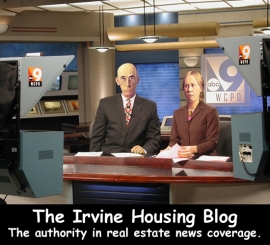
Thank you for reading the Irvine Housing Blog.
Astutely observing the housing market and combating California Kool-Aid since 2006.
Have a great weekend,
Irvine Renter
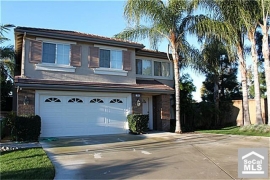








.jpg)
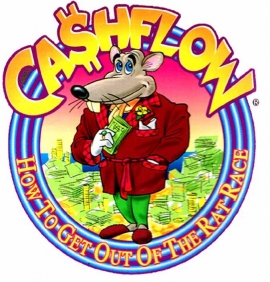






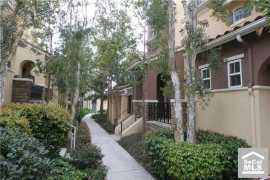
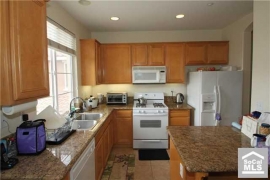
















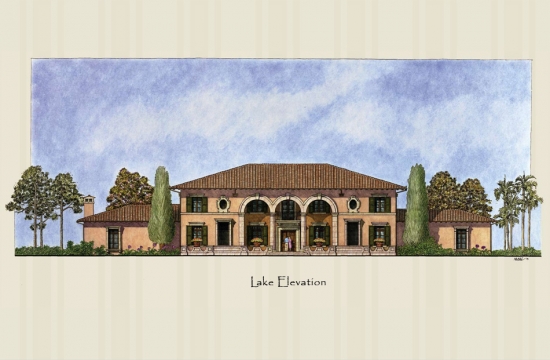
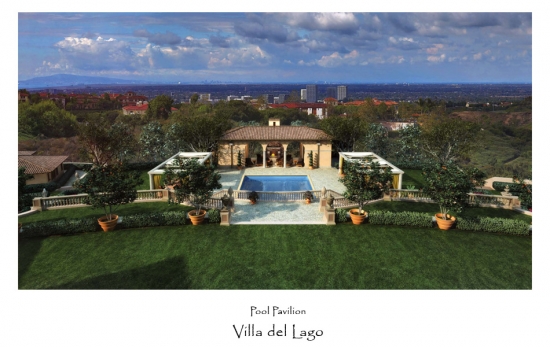



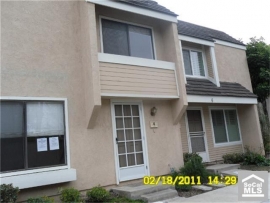









.jpg)
